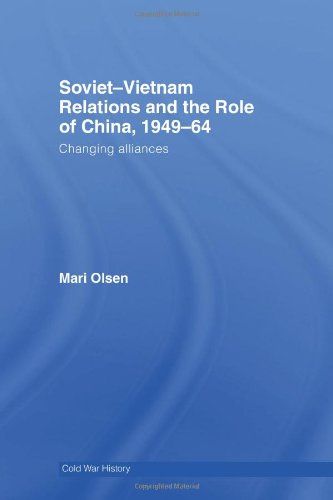

Most ebook files are in PDF format, so you can easily read them using various software such as Foxit Reader or directly on the Google Chrome browser.
Some ebook files are released by publishers in other formats such as .awz, .mobi, .epub, .fb2, etc. You may need to install specific software to read these formats on mobile/PC, such as Calibre.
Please read the tutorial at this link: https://ebookbell.com/faq
We offer FREE conversion to the popular formats you request; however, this may take some time. Therefore, right after payment, please email us, and we will try to provide the service as quickly as possible.
For some exceptional file formats or broken links (if any), please refrain from opening any disputes. Instead, email us first, and we will try to assist within a maximum of 6 hours.
EbookBell Team

0.0
0 reviewsDrawing on new information on Sino-Soviet-Vietnamese relationship in the early 1960s this volume offers a fascinating insight into communication within the communist camp. As long as this functioned well, Beijing's role as Moscow's major partner in Vietnam was a success. Moscow could focus on other, more pressing, issues while Beijing took care of Vietnam. With the Sino-Soviet split in the open, especially from 1963 onwards, Moscow was forced to make the vital decision on whether to support the Vietnamese communists. This book shows how the Soviet failure to understand the Vietnamese commitment to reunification, combined with the growing tensions between Moscow and Beijing, reduced Soviet influence in Hanoi in a significant period leading up the U.S. intervention in Vietnam.
The author has used two particular approaches, the leverage of smaller states on superpower politics and the validity of ideology in foreign policy analysis, to explain the dynamics of Soviet perceptions of the Chinese role in Vietnam, as well as to determine from what point Moscow began to perceive Beijing as a liability rather than an asset in their dealings with Vietnam.
This book will be of great interest to students of Cold War history, International History and Asian politics in general.